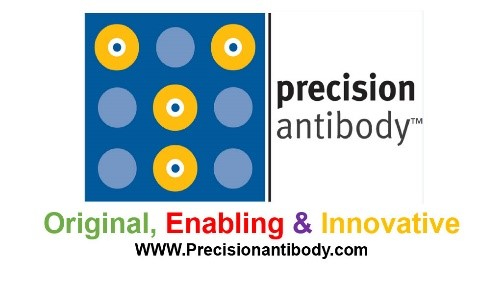Preclinical development is a key step in drug discovery. It’s the stage where your therapeutic idea shows if it can move forward to clinical trials. When it comes to biologics, particularly monoclonal antibodies (mAbs), nailing preclinical studies isn’t just about finding a “good” antibody. It’s also about engineering it to thrive in the tough conditions of therapeutic development.
About 85-90% of medication candidates fail to reach market. Preclinical testing sometimes presents obstacles such as lack of selectivity, limited efficacy or unexpected toxicity. Even more difficult are antibody based treatments. A promising chemical may function well in first tests but lack the modifications to fulfil strict safety, body processing and scale-up standards.
This is where antibody engineering becomes a game-changer. Instead of relying on antibodies in their natural form, engineering tailors them for improved binding, reduced immunogenicity, enhanced stability and better manufacturability. Today more than 100 antibody based therapeutics are FDA approved and many of them owe their success to early engineering interventions.
So how do you know when you should do this? Let’s look at the signals that your preclinical program needs an engineered antibody and talk about why making this choice early can save you time, money and problems.

Antibody engineering is all about taking natural antibodies and giving them a makeover to boost their therapeutic abilities and tackle any limitations they might have.
Researchers take a few different approaches, like:
These methods turn antibodies from promising compounds into therapeutic candidates with enhanced safety and effectiveness profiles.
Most antibody drug candidates face challenges during preclinical studies. A molecule might seem promising at first but can fail because of issues like instability, unintended interactions or not being strong enough in animal tests.
Antibody engineering breaks down these obstacles by:
If researchers bring in engineering strategies from the start they can increase the chances of success in clinical settings. This smart approach not only cuts down on development costs but also makes sure that only the best candidates move forward to human trials.

Transitioning an antibody from discovery to preclinical development is a crucial step yet it’s often where many hopeful candidates falter. Most therapeutic antibodies don’t make it to clinical trials often failing because of problems like weak binding, immune reactions or lack of effectiveness.
However, antibody engineering improves structure and function to get around some of these problems. These five signs point to the fact that a tailored antibody could make your preclinical study better.
When binding strength or selectivity falls short the therapeutic potential is at risk.
Undesirable immune responses are a major reason biologics fail in clinical trials.
Preclinical assays often expose shortcomings in immune activation.
Antibody success depends on reaching the right tissue in therapeutic concentrations.
Regulatory agencies frequently identify optimization needs during pre-IND review.
Your program may be at a critical turning point if any of these challenges sound familiar. Rather than letting binding issues, immunogenicity risks or regulatory pushback stall progress, antibody engineering offers a proactive solution. By optimizing your candidate early you not only reduce the risk of costly late stage failures but also strengthen your path toward clinical success.

Bringing antibody engineering into the early phases of drug discovery can significantly boost the chances of success later on. By fine tuning candidates for binding, stability, immunogenicity and functionality early on developers can prevent costly late stage failures and make the regulatory process smoother. Here are three essential advantages of embracing engineering strategies from the start of development.
Early engineering minimizes expensive setbacks later in development.
Optimized antibodies are more likely to advance successfully through trials.
Early optimization helps smooth the regulatory journey.
Using antibody engineering early in the discovery phase helps developers set their candidates up for long-term success. This proactive approach not only saves money but it also improves clinical results and speeds up regulatory milestones. This implies that patients can access life saving medicines faster and more reliably.

Working with a skilled antibody CRO can be a game changer in the drug development process. Instead of waiting for problems to pop up, getting involved early at key moments leads to smarter and more budget friendly progress.
Deciding when to bring in a CRO for antibody engineering can make all the difference in keeping your program on track for IND or encountering unnecessary delays.
Increased Failure Risk: Candidates with unresolved immunogenicity, poor stability or low efficacy are far more likely to fail in clinical trials, wasting valuable time and resources.

We don’t merely improve antibodies at Precision Antibody; we turn them into drugs that are ready for use in clinical trials. We help drug researchers get over preclinical barriers and speed up the process of getting IND approval by using cutting edge technology and years of experience.
Your antibody isn’t merely made; it’s made to work. With Precision Antibody as your partner you’ll be able to move candidates forward with more confidence, better performance and a better chance of making a difference in the clinic.
Let’s engineer your next breakthrough together.
Antibody engineering is a common method used in both research and the creation of new medicines.
Applications include:
The most important thing about antibodies is that they are very selective and have a strong affinity for target antigens.
This allows them to:
The main goal of preclinical testing is to evaluate safety, efficacy and pharmacokinetics before human trials begin.
This stage helps researchers to:

Led by innovative minds in immunology and the antibody development field, Precision Antibody has been an industry leader for over 20 years. We not only implement a cutting-edge technique in antigen design, antibody development, production, and other analyses, but we are also constantly working on ways to improve and advance technology to match the ever-changing world of science. If you are interested in learning more about Precision Antibody’s Custom Antibody development.
Precision Antibody™ is the forefront of the global Custom Antibody industry & it is led by the innovative minds in immunology and antibody development field.